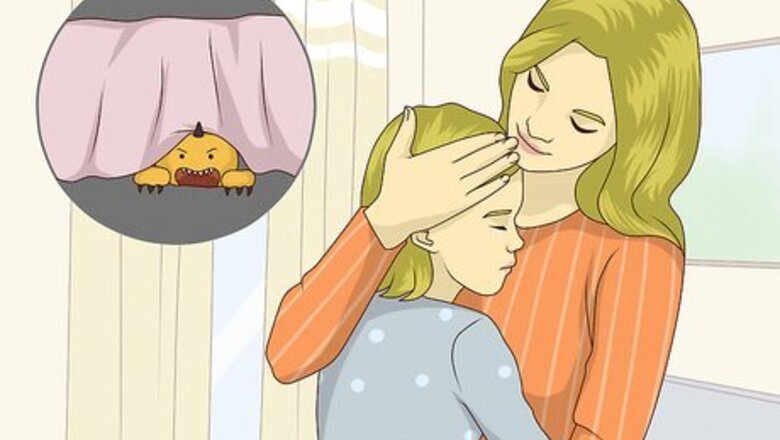
views
Understanding the Child's Fear
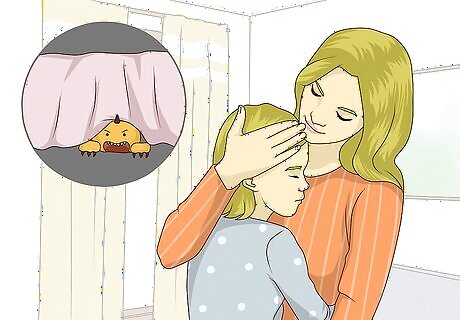
Understand your child's fear. Young children are still discovering the world that they live in. Their imagination is developing, and hence, whatever they see/hear in life can result in formation of scary mental images. For instance, hearing unfamiliar noises in a dark room may lead a child to imagine monsters under their bed and/or fear darkness. Children become fearful at different ages, with different intensities and about different things. Therefore, there is no one best way to overcome fears. It has to be customized according to your child’s developmental stage and their ability to handle stress.

Talk to your child. Talking to your child will definitely make them feel more comfortable. Let your child share their fear with you. Ask them to explain what is it that they are scared of and why. Let them explain how they felt. Show them your concern while they discuss their fear with you. Tell them how you were also scared of several things as a child. This empathy will definitely strengthen your bond with your child as they start believing that you care and are concerned about their feelings.
Taking the Fears Seriously

Do not ignore your child's fear. If your child is scared of a particular relative, caregiver or a neighbour, do not ignore it or force the child to be with them. Instead, speak to your child about it and let them explain what makes that person fearful. Even if you think that the person is unlikely to cause any trouble to the child, do give your child some benefit of doubt.

Do not make fun of your child’s fears. Making fun of a child’s fear will not make them less fearful; instead, it will increase their anxiety and at the same time lower their self-esteem. This can lead to more intense problems like developing phobias (an advanced state of fear). The child can overcome their fear only with your love and care. Neglect will only develop negative feelings in the child.
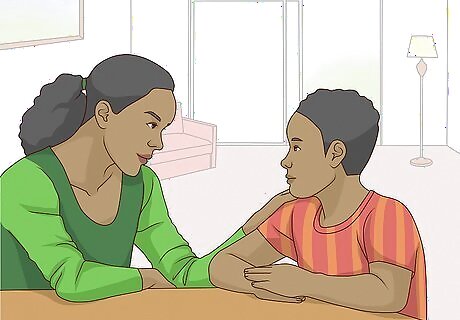
Give the right message. Don’t send wrong messages to your child by saying things like: “Stop being a baby”, “Don’t be scared”, “See, your friend is not scared”, etc. This makes the child believe that it is wrong to be scared and they will stop sharing their fears with you. Tell your child that it's all right to be afraid. Also, explain them that it is okay to share their fear and to ask for help.
Helping the Child Overcome the Fear
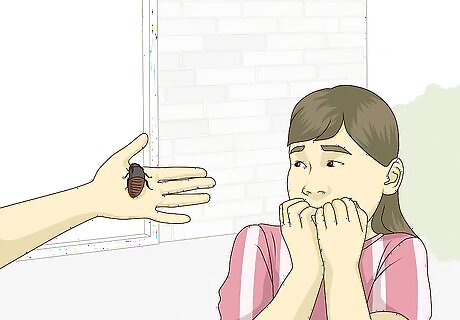
Do not force your child to do something that they are scared of. Forcing the child is likely to worsen their fear. Just think how you would react if you were forced to hold a scary bug in your hand or to go bungee jumping. Allow your child to take their own time to adjust and overcome the fears. Support your child with all the love and care that you can.

Model being brave. Your child will always follow your actions. If you freak out at something, the child will probably react in the same way. Your child believes if something or someone is safe for you, it is safe for them too. Also, don’t make your child scared by freaking out every time you feel that the child might hurt themself. Instead, just walk to them to assist them and explain what they should and shouldn't do for ensuring safety, in a calm way.

Keep children away from fearful characters. A young child cannot differentiate between reality and fantasy. Children do get scared of the fantasy characters that they watch on TV. Turn off the scary TV shows. Also, let your child understand the difference between fantasy and reality by explaining to them how movies and cartoons are made in a simple manner.

Offer to walk with the child through the house/room/area that the child associates fear with. Open all the doors, look under the bed; use light to show that nothing is there. If your child is frightened by sounds or shadowy images, discuss what could actually be causing these sounds in a non-judgmental way.
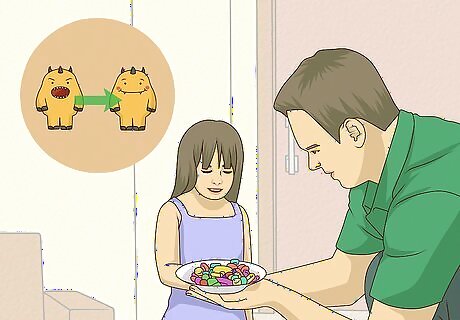
Use humor to defray the fear. Have the child describe to you the monster that they are imagining. Add silly things to that image, such as checkered underwear or a silly hat. Maybe you could pretend that this imaginary monster is asking to use the child's bathroom because they really, really have to go, or they sad because they don't have many friends. Play on your child's empathy for it. This will humanize the image of the monster and make them more likeable and less scary. Fill a spray bottle with a mixture of water and some lavender or other aromatic oil. Stick a big label on it that says "Monster Spray" and tell your child that this will keep all monsters away because, not only are they afraid of water, but the sweet smell makes their nose itch. Spray a few spritzes into the air and assure your child that any monster would have to be crazy to come in here now. Put a dish by the door and fill it with a few candies, then tell your child that candy is a monster's favorite thing in the world, but once they eat them they become soft and sweet, like puppy dogs. Take a ball of yarn and lay a "monster barrier" around your child's bed. Tell your child that monsters can't cross that sort of barrier and if they try, they will go poof and are zapped away like magic.

Make sure your child knows they are loved. Make it clear that you will always be there to protect your child.




















Comments
0 comment